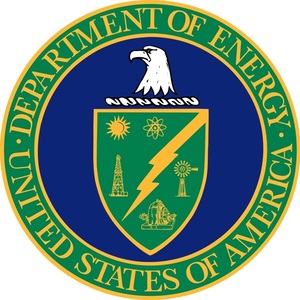DOE opens $59M FOA for advanced biofuels, ethanol GHG reductions

June 1, 2022
BY Erin Krueger
The U.S. Department of Energy on June 1 opened a $59 million funding opportunity to support the scale-up of integrated biorefineries and greenhouse gas (GHG) reduction in first generation ethanol production. The initiative supports the production of renewable diesel, aviation, marine and rail fuels.
A funding opportunity announcement (FOA) published by the DOE’s Bioenergy Technologies Office explains that the funding supports high-impact technology research, design and development (RD&D) to accelerate the bioeconomy and, in particular, the production of low-carbon fuels for aviation, marine, rail and long-haul trucking industries. The FOA also aims to strengthen current first-generation corn ethanol production facilities by reducing their overall carbon footprint.
Applications can be submitted under four primary topic areas. The first focuses on pre-pilot scale-up of integrated biorefineries for the production of sustainable aviation fuel (SAF), renewable diesel, sustainable marine fuel, or sustainable rail fuel at achieves at least a 70 percent GHG reduction. Eligible feedstocks include lignocellulosic feedstocks, algae, organic wet waste, sorted municipal solid waste (MSW), food waste, biogas, grain starch, oilseed crops, C&D waste and waste carbon dioxide.
Advertisement
Advertisement
The second topic area focuses on the pilot scale-up of integrated biorefineries. The eligible fuels and feedstocks are similar to those included under the first topic area. The resulting fuel must also achieve at least a 70 percent GHG reduction. Pilot projects awarded funding under the second topic area must produce at least 20,000 gallons of biofuel per year equivalent, according to the FOA.
The third topic area focuses on the demonstration scale-up of integrated biorefineries. The requirements for fuel type, feedstocks and GHG reductions are largely the same as the first two topic areas, but the demonstration projects must produce at least 1 million gallons of biofuel per year equivalent.
The fourth topic area focuses on emission reductions at first-generation corn ethanol plants. According to the FOA, anticipated approaches for the fourth topic area include the use of waste and underutilized carbon feedstocks, carbon capture and utilization, or biorefinery technologies that take advantage of existing assets and infrastructure, such as bolt-on and retrofit technologies. Other possibilities include, but are not limited to, the inclusion of bioproducts, and the development of predictive models and high-performance computing as tools to accelerate scale-up. The DOE is not interested in funding proposals that include carbon capture and sequestration (CCS).
According to the FOA, $49 million of the $59 million in available funds are expected to fund projects under the first, second and third topic areas. The remaining $10 million is expected to fund projects under topic area four.
Advertisement
Advertisement
The DOE said it expects to fund between 4 and 20 projects under this FOA.
An informational webinar on the FOA is scheduled for June 15. Concept papers must be submitted by July 8, with the submission deadline for full applications set for Sept. 9.
Additional information is available on the DOE website and under DE-FOA-0002638 on the DOE’s Energy Efficiency and Renewable Energy Funding Opportunity Exchange.
Related Stories
The U.S. Department of Energy’s Office of Energy Efficiency and Renewable Energy is soliciting public comments on a preliminary plan for determining provisional emissions rates (PER) for the purposes of the 45Z clean fuel production credit.
On July 17, Iowa’s cost-share Renewable Fuels Infrastructure Program awarded $1.12 million in grants for 20 applicants to add B11 and 4 applicants to add E15 to retail sites. This was the first meeting following the start of RFIP’s fiscal year.
Par Pacific Holdings Inc., Mitsubishi Corp. and ENEOS Corp. on July 21 announced the signing of definitive agreements to establish Hawaii Renewables LLC, a joint venture to produce renewable fuels at Par Pacific’s refinery in Kapolei Hawaii.
A new study published by the ABFA finds that the U.S. EPA’s proposal to cut the RIN by 50% for fuels made from foreign feedstocks, as part of its 2026 and 2027 RVOs, could stall the growth of the biomass-based diesel (BBD) industry.
Reps. Mike Flood, R-Neb., and Troy A. Carter, Sr., D-La., on July 21 reintroduced the SAF Information Act. The bill directs the U.S. EIA to more explicitly include SAF data in its weekly and monthly reports.
Upcoming Events










